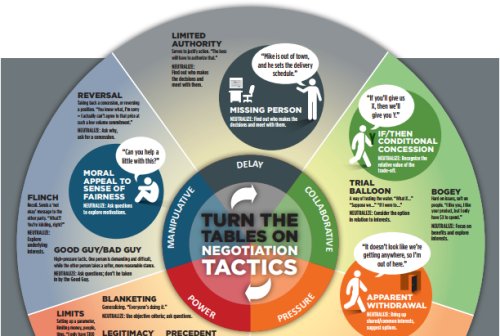Rapport is a word often used, but unfortunately scantly understood by many that so glibly utter it. In most dictionaries it is defined as a "harmonious relationship". "Harmonious" being said to mean" forming a pleasant whole: free from disagreement".
The best definition probably derives from Neuro Linguistic Programming: "Seek to reduce the differences between ourselves and another person, at a non-verbal as well as a verbal level, at a level below the conscious awareness of the other person." It involves minimising the differences and maximising the 'sameness' between yourself and another person.
How do we build rapport?
Rapport requires of us as negotiators to develop the ability to place ourselves in the shoes of the other party and then view the world from their perspective. It furthermore depends on our willingness to accept that although the other party may view the world in a way very different from ours, and behave accordingly, such a perspective and the resultant behaviour is neither right nor wrong.
How do we do this?
The best way to do this in a negotiation is by pacing the other person; in a graceful and respectful way adjusting our behaviour, verbal and non-verbal, to a physical and psychological level where we move with the behaviour of the other party. Although the other party may not be consciously aware of this they will subconsciously, despite initial assumptions, experience us as being more like they are.
We can pace the other party by attending to our body language by:
- Matching all or part of body positioning by adopting the same posture, movements, etc.
- Adopting the same head and shoulder angle
- Mirroring facial expressions;
- Matching gestures such as pointing and waving of hands.
- Using the same tone, tempo, volume and intensity.
- Using the same repetitive phrases we are confronted with, such as: "You see what I mean".
Determining which of the five representational systems:
- visual ("Looks good to me.")
- auditory ("I hear what you are saying")
- kinesthetic ("It feels good to me.")
- gustatory ("It has the right flavour to it.")
- olfactory ("I like the smell of what you are trying to say.")
the other party uses these to represent their world in language
Matching the preferred representational system and thereby getting onto the same inner wavelength
Our breathing by:
- Emulating the depth and breathing speed
For example carefully observing dress preference and then matching this preference Should we break rapport?
In any negotiation there may come a time when you wish to make the other person feel uncomfortable with you at a subconscious level. Such a need could arise if the other party were to suddenly resort to being loud, aggressive and obstructionist. You could then very subtly respond by, at a subconscious level, beginning to reward acceptable behaviour by maintaining rapport and punishing unacceptable behaviour by breaking rapport.
Leading
Once rapport is firmly established it becomes possible to lead the other party towards a desired outcome. You could for example, in the case of the other party being stressed and very tense, decrease the rate of your speech, lower the tone of your voice, breathe more deeply and more slowly, and generally convey a relaxed image. The other party, without becoming aware of it, is likely to adopt a more relaxed approach.
***
